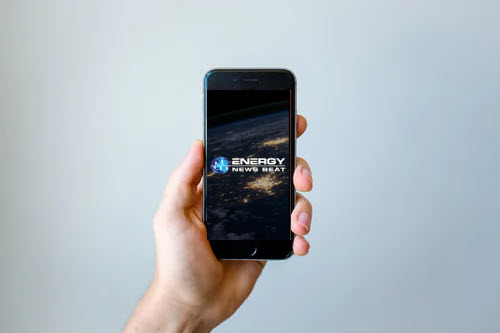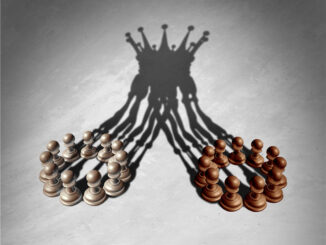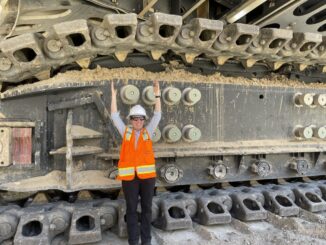
Gamble started a career in tech, selling some of the first cell phones in Canada. She did the first business video conferencing for CBC in Canada and rose up through the corporate ranks at AT&T, marketing early adopting technologies and working with start-ups in San Francisco before becoming an entrepreneur.
She founded Women on The Move: Artemis Project, coaching female entrepreneurs and supporting them on their paths. Gamble’s leadership led Artemis Project to become a global movement with the potential to create opportunities for all women in the mining supply chain.
She shared some career highlights and industry insights in this exclusive interview with MINING.COM.
MDC: What led you to a career in mining?
Gamble: It was completely accidental. I started the first women’s business accelerator in Canada in 2014. I saw that women were becoming entrepreneurs quite quickly, and that the fail rate was relatively high. So I opened up a space where they could co-work and I could provide training and networking and sales strategies — called Women on the Move. We had women from doulas on bicycles to high-end operational consultants in mining.
MDC: Tell us about the Artemis Project
Gamble: At the beginning of covid, we decided to close the space, and focus on mining. We’d received, organically, so much demand. It’s a team that’s come together in shared purpose. We have over 80 premium women in mining entrepreneurs located across Canada, Chile, Brazil. Who we represent and build capacity for and, an important differentiator, we bring the entrepreneurs to curated delegation meetings, with our sponsors, who are mining companies. We have the talent, but the commitment is to drive business opportunities. We play the role of the bridge between the mid-to-large mining companies and women entrepreneurs.
We are for profit, but we are a social enterprise. That means we are here to drive beyond profit. Drive good value for our clients, our community as it relates to our UN Sustainable Development Goals and give back. We’ve won awards for the work we’ve done on UNSDGs. Now mining is the number one industry in the UN Global Compact in Canada. We’re entrepreneurs, really using business as a means of social, environmental, and economic good. We’re here to make changes in mining. Lots of people say mining companies are laggards and slow to adapt — no way. We grew 200% last year. Mining is doing more for women entrepreneurs than I’ve seen in any other industry. And mining is so impactful, so core to this world. We’re developing a feminist regenerative model of mining.
MDC: What is your model?
Gamble: ‘Feminist’ means equal — it means equity [and] holistic thinking. It means equitable for employees, for communities and thinking in a systems-based approach. A clearer way to say it is circular economy — and there are so many circular opportunities in mining. ‘Regenerative’ means leave it better than when you found it. If you use those principles in the design, production and everything about mining, I think it will change everything if you think regeneratively. I don’t like the word ‘sustainably’. Mining touches so many local communities, and so a goal should be to eradicate poverty in those local communities. Because it can. It can turn tailings into fertilizer to help local farmers. There’s all sorts of amazing, innovative stuff being done.
MDC: What are some misconceptions about the industry?
Gamble: I think there’s a misconception that it’s a dirty business, yet its one of the most critical industries on this planet. The past is the past — we have to move forward and we have to extract with superior levels of responsibility.
MDC: What are some challenges/opportunities for women in the industry?
Gamble: I think anywhere there’s not a balance is challenging for the group that doesn’t have the balance. All the women in mining that, every time they go to a shift or into a room [and] they are the only one there — they carry this. I would say to all of them: you did it, you opened it. Now is the time to balance because for anyone who’s in the room or on the shift who is that minority, it’s very hard to be yourself.
These incredible women have paved the way — now there’s momentum. And there’s no question that diverse and inclusive businesses are more profitable and better in so many critical factors that I see mining companies taking action to become more diverse and inclusive. I think it’s an exciting time for women, and I don’t want them to be in a room by themselves anymore. The stats are 15% and we want that to grow to 30% by 2025. It’s a really interesting challenge.



